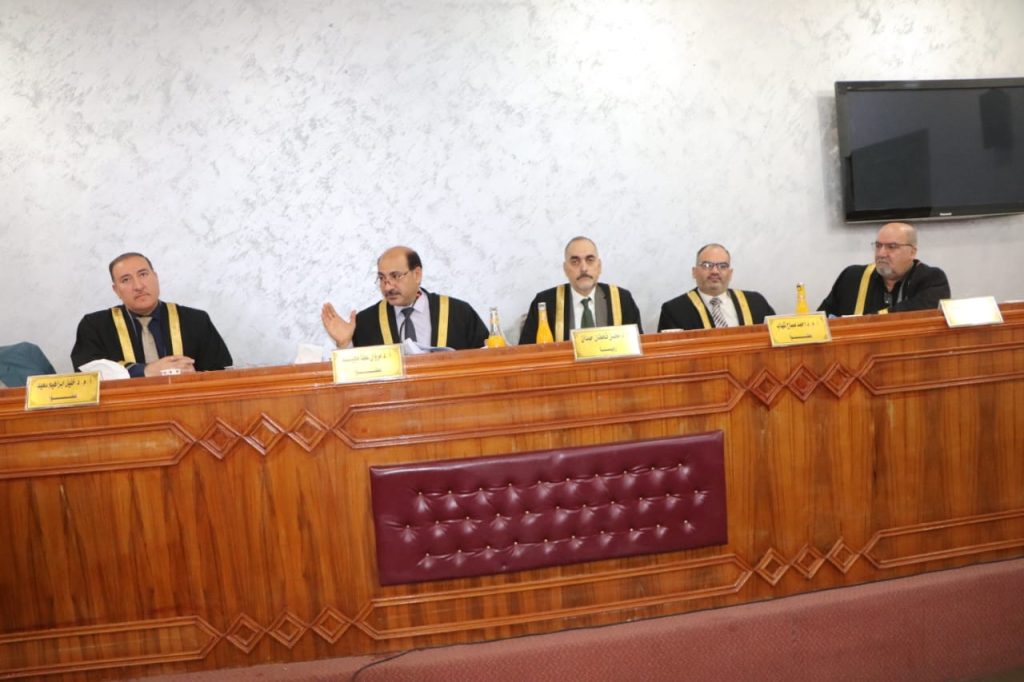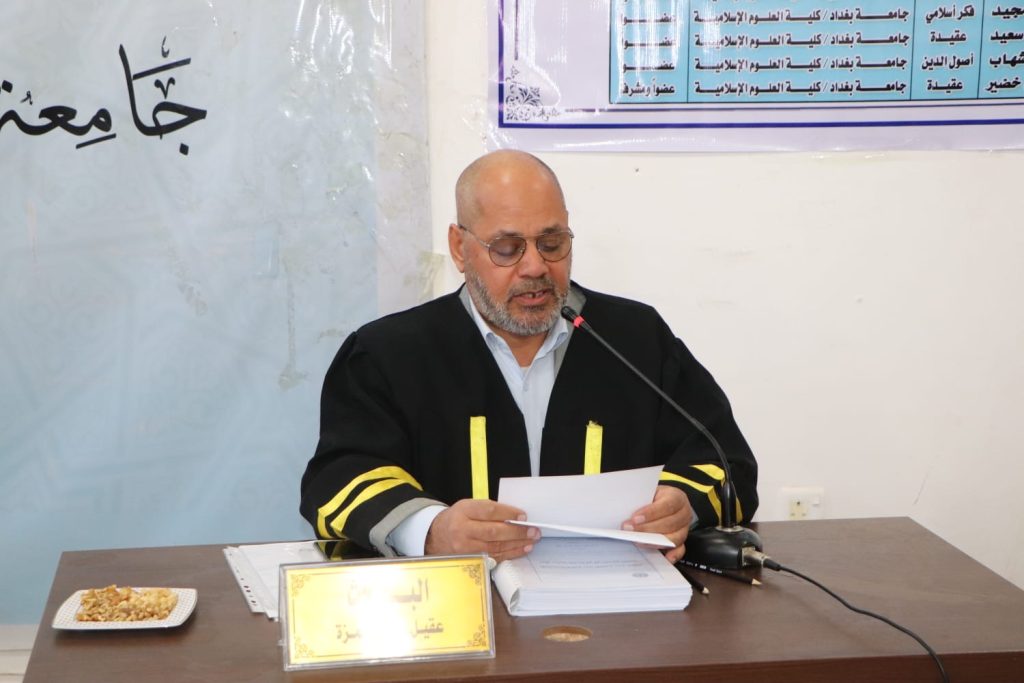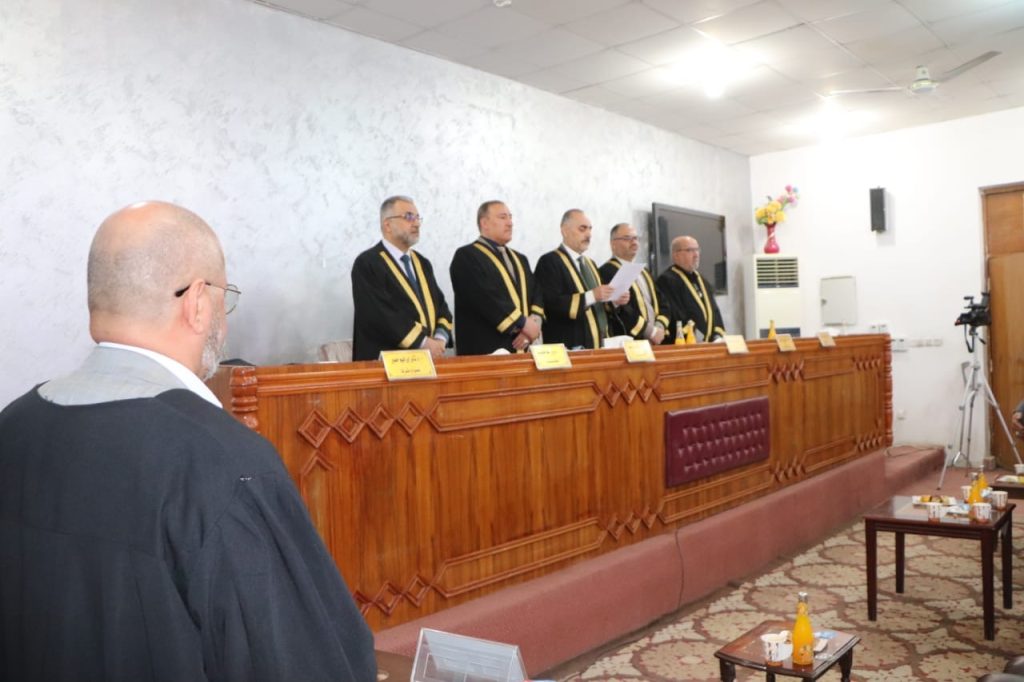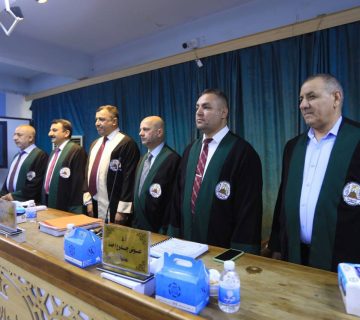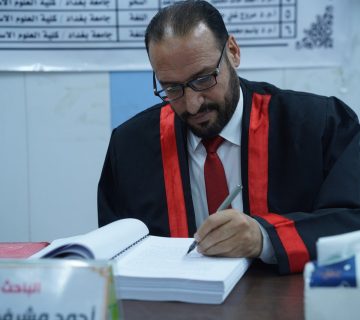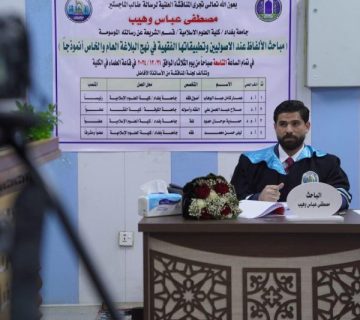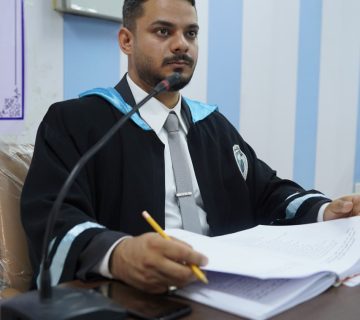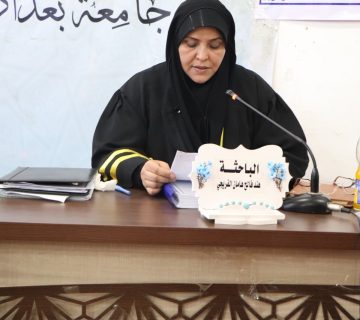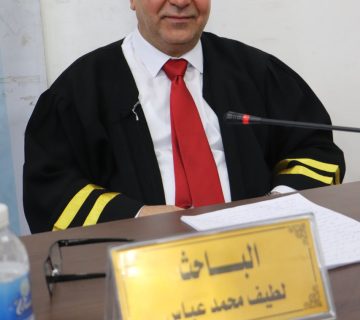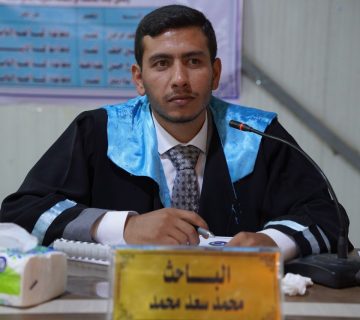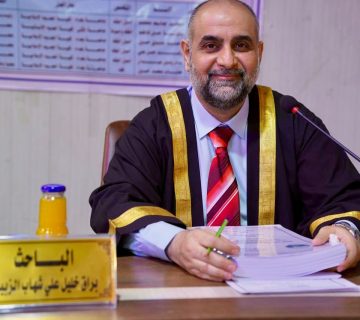The College of Islamic Sciences at the University of Baghdad discussed the thesis titled ‘Theological Deduction between Al-Ash’ari and Ibn al-Mutahhar Al-Hilli: A Comparative Study in Light of the Theological Methodology’ presented by the student Aqeel Hussein Hamza from the Department of Creed and Islamic Thought in Al-Al-Bayt Al-Atyab Hall.
The significance of the study lies in the examination and contemplation of the eminent scholars’ deductions through an exploration of their evidential works. This has a significant impact on clarifying many ambiguities and uncertainties surrounding their opinions. The topic of deduction encompasses wide avenues, providing the researcher with an opportunity to reflect on the methods employed by scholars in extracting judgments and knowledge. Studying the opinions of prominent scholars in a comparative manner is beneficial for the researcher, enriching the library by elucidating their doctrinal perspectives. Extracting an accurate portrayal of sound beliefs, along with comparing them with the views of other distinguished scholars, allows for a flexible mindset in embracing diverse opinions within the framework of scientific criteria.
The thesis yielded several key findings and recommendations, among which: The term “al-istinbāṭ” (deduction) in language is derived from the root word “an-nabṭ,” signifying the extraction and manifestation of something after it was hidden. This linguistic meaning aligns with the terminological sense, whether the concealment is from sight or insight. Deduction, in the context of extracting meanings from textual expressions, is associated with intellectual effort, reasoning, and the application of thought. The multiplicity of definitions of the science of Kalam sheds light on the history of this discipline. Ibn al-Mutahhar’s definition positions it as a tool for understanding the knowledge of the Creator and His effects, making it comprehensive for every belief and a defender of its creed. Al-Ash’ari’s intellectual scrutiny involves contemplation, thought, consideration, and comparison. These aspects of intellectual reflection are emphasized in the Quran, portraying the significance of reasoned contemplation and analysis in theological discourse.
The thesis was approved with a satisfactory evaluation by the examining committee, which was chaired by Professor Dr. Mohsen Qahtan, with Professor Dr. Iyad Kareem, Professor Dr. Marwan Atta, Dr. Khalil Ibrahim, and Dr. Ahmed Sabah as members. Professor Dr. Thaer Ibrahim served as a member and supervisor. The defense session was attended by Professor Dr. Nama Dhiab Farhan, the Dean of the College, and his administrative assistant, Dr. Arkan Rahim Jabr, to closely follow the academic proceedings.

Comments are disabled.




